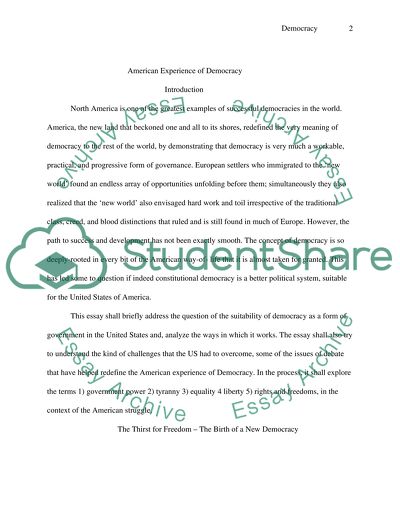Cite this document
(American Experience of Democracy Coursework Example | Topics and Well Written Essays - 1750 words, n.d.)
American Experience of Democracy Coursework Example | Topics and Well Written Essays - 1750 words. https://studentshare.org/politics/1499339-american-experience-of-democracy
American Experience of Democracy Coursework Example | Topics and Well Written Essays - 1750 words. https://studentshare.org/politics/1499339-american-experience-of-democracy
(American Experience of Democracy Coursework Example | Topics and Well Written Essays - 1750 Words)
American Experience of Democracy Coursework Example | Topics and Well Written Essays - 1750 Words. https://studentshare.org/politics/1499339-american-experience-of-democracy.
American Experience of Democracy Coursework Example | Topics and Well Written Essays - 1750 Words. https://studentshare.org/politics/1499339-american-experience-of-democracy.
“American Experience of Democracy Coursework Example | Topics and Well Written Essays - 1750 Words”. https://studentshare.org/politics/1499339-american-experience-of-democracy.


